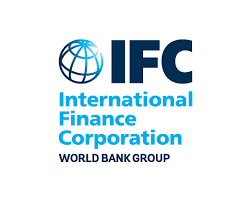Nigeria’s energy deficit poses a significant impediment to its socio-economic development. Millions lack access to electricity entirely, while many more suffer from unreliable power supply, forcing them to rely on costly and environmentally damaging diesel generators. Recognizing the urgency of this challenge, the International Finance Corporation (IFC), in collaboration with the Canadian government, has invested $5 million in Husk Nigeria to expand access to clean, reliable, and affordable electricity through solar hybrid mini-grids. This investment marks a crucial step towards alleviating energy poverty and fostering sustainable development in underserved communities across Northern Nigeria.
The IFC’s commitment represents the inaugural investment under the Distributed Access through Renewable Energy Scale-up Platform (DARES), a $200 million debt facility designed to catalyze private sector investment in renewable energy solutions across West and Central Africa. The DARES Platform complements the World Bank-financed Nigeria DARES Project, a $750 million initiative aimed at providing over 17.5 million Nigerians with improved or new electricity access through decentralized renewable energy systems. This synergistic approach underscores the commitment of international development institutions and the Nigerian government to address the nation’s energy crisis.
The $5 million investment in Husk Nigeria is specifically earmarked for the development and operation of up to 108 solar hybrid mini-grid sites. This ambitious project is expected to connect approximately 115,000 individuals and businesses, establishing around 28,750 new electricity connections. By providing a cost-effective alternative to diesel generators, Husk’s mini-grids offer users potential cost savings of at least 25% while significantly reducing greenhouse gas emissions. The project’s total cost is estimated at $25 million, with the IFC’s contribution comprising a $2.5 million senior loan and a $2.5 million concessional subordinated loan from the Canada-IFC Renewable Energy Programme for Africa. The revolving nature of the loan facility allows Husk to repay and redraw funds multiple times throughout the project’s implementation, providing financial flexibility and ensuring project sustainability.
This investment highlights a multi-faceted approach to tackling the energy access challenge in Nigeria. Firstly, it leverages the expertise and resources of international development institutions like the IFC and the World Bank. Secondly, it fosters partnerships between government and the private sector, with the Canadian government’s contribution further strengthening the collaborative effort. Thirdly, it prioritizes sustainable and environmentally friendly solutions by focusing on renewable energy sources like solar power. Finally, it emphasizes a decentralized approach to power generation, empowering local communities and reducing reliance on the often-strained national grid.
Leaders from both the IFC and Husk have expressed optimism about the project’s potential impact. Ethiopis Tafara, IFC Regional Vice President for Africa, emphasized the innovative nature of the DARES Platform and its potential to serve as a replicable model for addressing energy access across the continent. Manoj Sinha, Co-founder and CEO of Husk, highlighted the importance of blended, long-term, and affordable capital for scaling the mini-grid industry. Olu Aruike, Country Director of Husk Nigeria, underscored the critical role of working capital in driving sustained growth and reiterated Husk’s commitment to deploying substantial renewable energy capacity in Nigeria.
The investment in Husk Nigeria is not merely a financial transaction; it represents a strategic intervention in Nigeria’s development trajectory. By addressing the critical challenge of energy access, the project aims to unlock economic potential, improve quality of life, and contribute to a more sustainable future. While Nigeria holds the unenviable distinction of having the world’s highest electricity access deficit, initiatives like this offer a glimmer of hope, demonstrating that collaborative and innovative solutions can pave the way for a brighter, more electrified future. The successful implementation of this project could serve as a compelling case study for similar initiatives across Africa, further accelerating the continent’s transition towards sustainable energy and inclusive growth.














